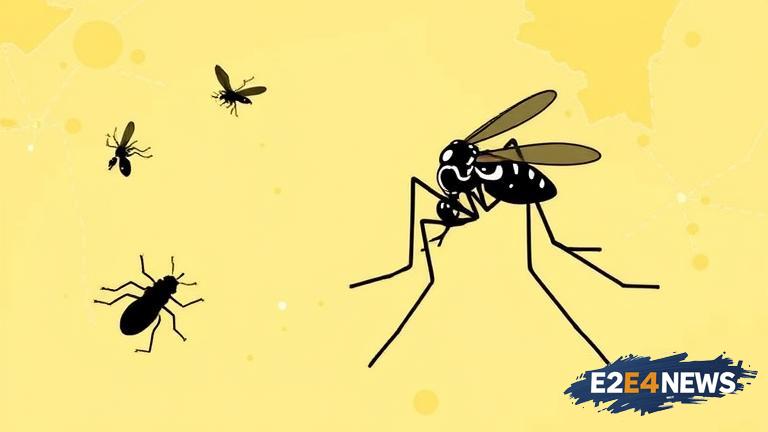The Health Ministry in St. Vincent and the Grenadines has announced plans to intensify its efforts to combat mosquito-borne illnesses, which have been a significant concern for the island nation in recent years. According to reports, the ministry is taking a multi-faceted approach to tackle the issue, including increasing surveillance, enhancing public awareness, and implementing control measures to reduce the mosquito population. The move comes as the region is experiencing an uptick in cases of dengue fever, chikungunya, and Zika virus, all of which are transmitted by the Aedes aegypti mosquito. The Health Ministry has warned that the risk of mosquito-borne illnesses is higher during the rainy season, which typically runs from June to November. As such, the ministry is urging residents to take precautions to prevent mosquito breeding, such as eliminating standing water around homes and using insect repellents. The ministry is also working with local communities to identify and eliminate potential breeding sites, such as abandoned tires and clogged drains. In addition, health officials are conducting regular inspections of public and private premises to ensure compliance with mosquito control regulations. The ministry has also launched a public awareness campaign to educate residents about the risks associated with mosquito-borne illnesses and the steps they can take to prevent them. The campaign includes radio and television advertisements, as well as social media outreach and community outreach programs. Furthermore, the ministry is collaborating with regional and international partners to share best practices and stay up-to-date on the latest research and technologies for combating mosquito-borne diseases. The Health Ministry has also established a hotline for residents to report suspected cases of mosquito-borne illnesses, which will enable health officials to respond quickly and effectively to outbreaks. In recent years, St. Vincent and the Grenadines has experienced significant outbreaks of dengue fever and chikungunya, which have resulted in significant economic and social impacts. The Zika virus, which was first detected in the region in 2016, has also been a major concern, particularly for pregnant women and young children. The Health Ministry has warned that the risk of mosquito-borne illnesses will continue to be a major public health concern unless collective action is taken to prevent them. As such, the ministry is urging all residents to take an active role in preventing mosquito breeding and protecting themselves and their families from mosquito-borne illnesses. The ministry has also announced plans to distribute insecticide-treated bed nets to vulnerable populations, such as pregnant women and young children. Additionally, health officials are working with local healthcare providers to enhance their capacity to diagnose and treat mosquito-borne illnesses. The Health Ministry has also established a task force to coordinate the response to mosquito-borne illnesses, which includes representatives from various government agencies, as well as non-governmental organizations and community groups. The task force will meet regularly to review the situation and develop strategies to address emerging challenges. Overall, the Health Ministry’s efforts to combat mosquito-borne illnesses are critical to protecting the health and well-being of residents in St. Vincent and the Grenadines. By working together, the ministry and the public can reduce the risk of these diseases and create a healthier and more resilient community. The ministry’s efforts are also aligned with regional and international efforts to combat mosquito-borne diseases, which are a major public health concern globally. In conclusion, the Health Ministry’s intensified efforts to combat mosquito-borne illnesses are a welcome development, and it is hoped that these efforts will yield positive results in the coming months and years.
